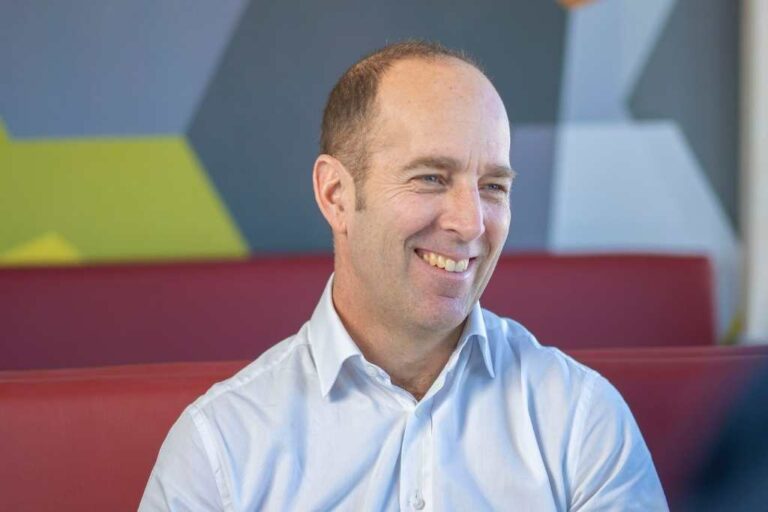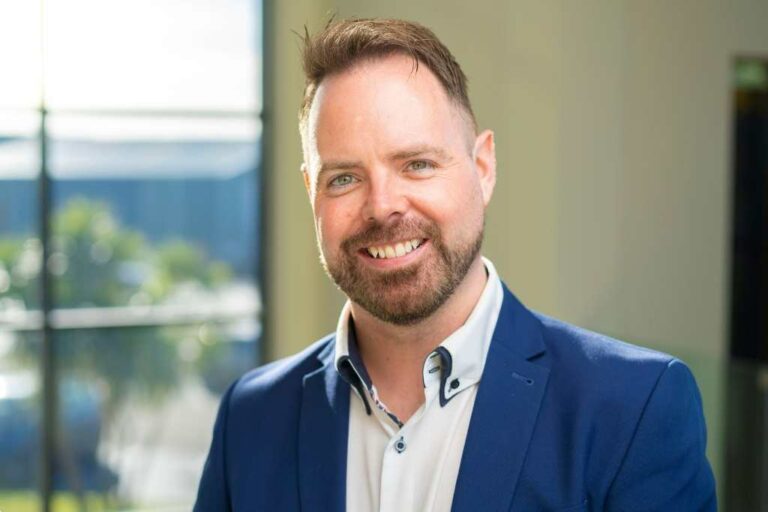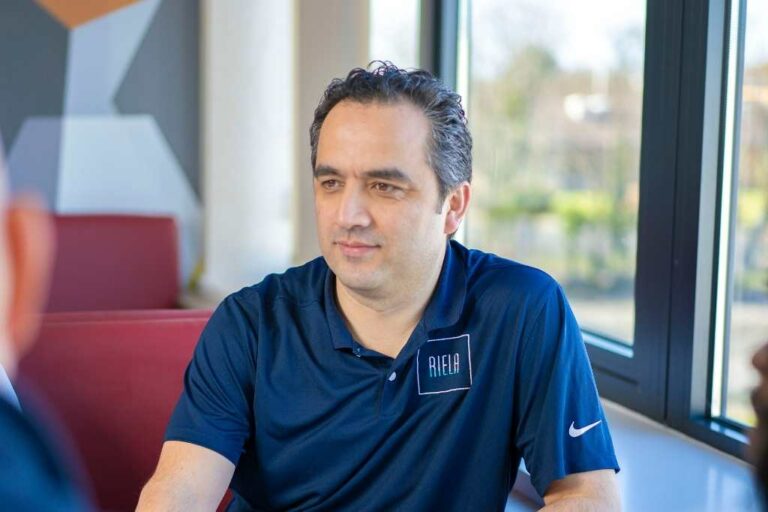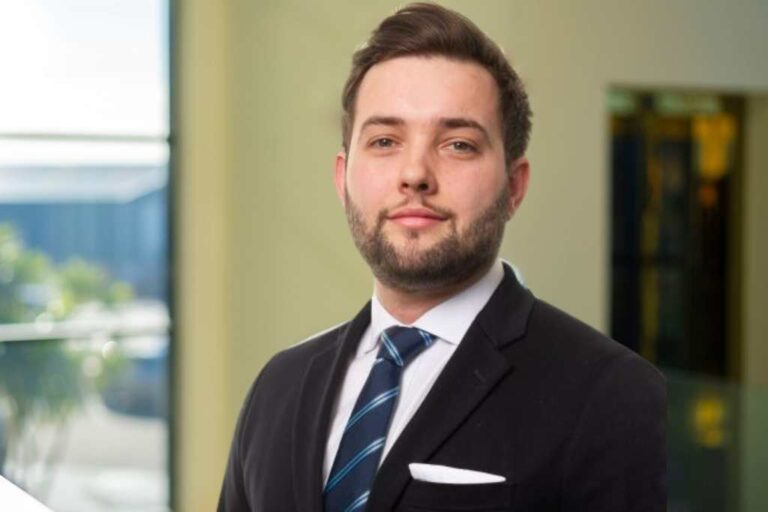When dealing with large sums of cash, it is imperitive that cyber defence strategies are in place to proactively prevent any data breach. This is of particular relevance to those using third-party services, as data in multiple places is an increased security risk. At Riela Cyber we stop these events from occurring by using preventative SOC services, such as network monitoring and threat intelligence.
Loss of confidential information can damage the reputation of your business and undermine your reputation. Inevitably, creating long-term negative impacts for your clients. At Riela Cyber we use protective SOC services to ensure that your data is secure. Our team of Cyber Engineers do this by actively hunting for threats before they even arrive.
Like any business, employees can be both your biggest strength and your biggest weakness, it all depends on training. With phishing scams on the rise, cyber security training is more important than ever.
In September 2020, the Isle of Man Financial Services Authority (FSA) updated their regulatory guidance on cyber security. The IA2008, CGC2020 and the CGC2018 contain provisions broadly requiring regulated entities to have the following in place for effective corporate governance. The following information is copied from the FSA’s original document, which can be found here.
FSA Best Practices:
Where relevant legal and regulatory requirements apply, the FSA expects regulated entities to:
FSA Best Practices:
Stay up to date with the latest industry insights and company updates.

Kurt Schrauwen is a Director of the Riela Group of companies which includes Riela Yachts, Riela Cyber and Riela Tech.
Kurt brings more than 20 years of leadership experience having been an early part of the global success of Microgaming in becoming a market leader. Kurt was responsible for the commercial, contractual, and technical sales for Microgaming and with this experience will complement the company’s growth strategy.
Kurt is passionate about business optimisation and prides himself in having an intrapreneurial outlook to maximise staff potential, reduce inefficiencies as well as identifying and maturing revenue growth opportunities.

Paul Cocker joined the Riela Group in late 2021, after spending just under 20 years with his previous employer.
Paul is responsible for the Riela Tech service levels, working on both the dispatch function and SLA management. Paul carries out a variety of duties across the Network Operations Centre and works closely across the wider team to deliver professionally tailored solutions for our Riela Tech clients.
Something isn’t Clear?
Feel free to contact us, and we will be more than happy to answer all of your questions.

Murat Guner joined the Riela Group in the Summer of 2021 as an Infrastructure Engineer.
Murat began his career in Turkey as a computer teacher for primary and secondary schools before migrating his skills into IT infrastructure. After honing his IT experiences throughout a colourful career path, Murat gained numerous qualifications which he is now excited to apply to the management of our Riela Tech infrastructure.

Andy is a qualified Network Engineer with in-depth knowledge of architecting, implementing and supporting networking solutions in the SMB, Enterprise and Service Provider environments.
He has over 20 years of experience working across multiple vendor operating systems, including Cisco, Juniper, Linux and Microsoft, and has also been responsible for implementing a variety of large scale network services deployments, taking projects from design to rollout and support.
Andy also has experience of deploying and migrating a range of virtualisation technologies including VMWare, Hyper-V and KVM based systems.
Email: andy@riela-cyber.com

Marc is our Group’s Infrastructure and Managed Services lead with over 18 years’ experience in delivering infrastructure projects across multiple industry verticals and international jurisdictions. From projects in Aerospace and Engineering through to Banking and Insurance, from Europe, China, Africa and Australia.
This experience is matched with a varied list of certifications from leading industry vendors such as Hp, Cisco, Microsoft, Ruckus, CompTIA and more. As a qualified technical trainer Marc is comfortably able to take complicated technical concepts and deliver them in simplistic terms to key decision makers and end users alike.
Most of Marc’s experience has been gained working for managed service providers, both large and niche and as such is able to take real world experience and blend it with industry standards to help align our service delivery with our clients values and processes.

As a Marketing Executive, Alex is responsible for all marketing duties spanning the Riela Group.
Alex joined the Riela Group in August 2020, shortly after graduating with a Psychology degree from Nottingham Trent University.
With past work experience in content marketing, event management and web design, Alex is able to apply her creative and analytical skills into the Riela strategy.

As the Head of Group Sales at the Riela family of companies, Matthew leads the company’s sales strategy, execution, and growth.
Matthew has a successful record building trusted client relationship and delivering upon set expectations. An accomplished sales leader, he delivers a sales process that provides clients with the information and support they need to make the right decisions for their organisations and their constituents.
Matthew has significant experience within the maritime industry having previously worked across various sectors including insurance, security, satellite communications and managed IT. Matthew’s most recent experience encompasses almost 5 years spent with the leading satellite communications and managed IT provider in the maritime industry, focusing on their superyacht clientele.

Christian is involved across the Riela family of companies with particular attention to the technology businesses, Cyber and Tech.
Christian gained a postgraduate Master in Finance degree at the University of Neuchatel, Switzerland and completed his MBA at the University of Chicago Booth School of Business.
Before joining us, Christian worked for six years at Argosy Capital, an Isle of Man-based private equity and venture capital business focusing on early-stage growth businesses. At Argosy, he focused on managing investment companies, research and financial analysis and served as a director on several boards.

Robert Tobin is the Managing Director of the Riela Group of Companies and is responsible in overseeing our business operations, our people and driving excellence in all we do.
Rob brings over 25 years’ of successful leadership and entrepreneurial experience across a range of industries including Family Office, corporate services, construction engineering, Superyachts, cyber security and information technology development to our Group, and to our customers.
In the past 15 years Rob has gained a prominent reputation within the Superyacht industry for his passion, integrity, innovation and achievements to date.
“Being part of an awesome, capable and forward thinking team that have a shared passion for Superyachts, people and the environment is the highlight of my career and puts a smile on my face and a spring in my step everyday”.

Peter is an experienced technology consultant with a demonstrated history of working in the IT and cyber security industry. Skilled in Search Engine Optimization (SEO), IT Strategy, Start-ups, Regulations, and Online Gaming. Strong consulting professional with a DPhil focused in Natural Sciences from ChristChurch, Oxford.

Tim Bliss, Managing Director of Riela Tech since the company foundation in 2015 and Director of Riela Cyber, brings over 20 years’ of successful leadership experience across a range of industries including finance and banking, software development, and manufacturing, as well as cyber security and information technology. Prior to forming the company he led the technology for Manx Financial Group PLC, where he was instrumental in business systems transformation.
“It is our hugely capable team of experts that drives our business – it is fantastic and rewarding to be able to use technology, intelligence, and great customer service to help make our clients’ business and staff progressively more efficient resilient and secure”